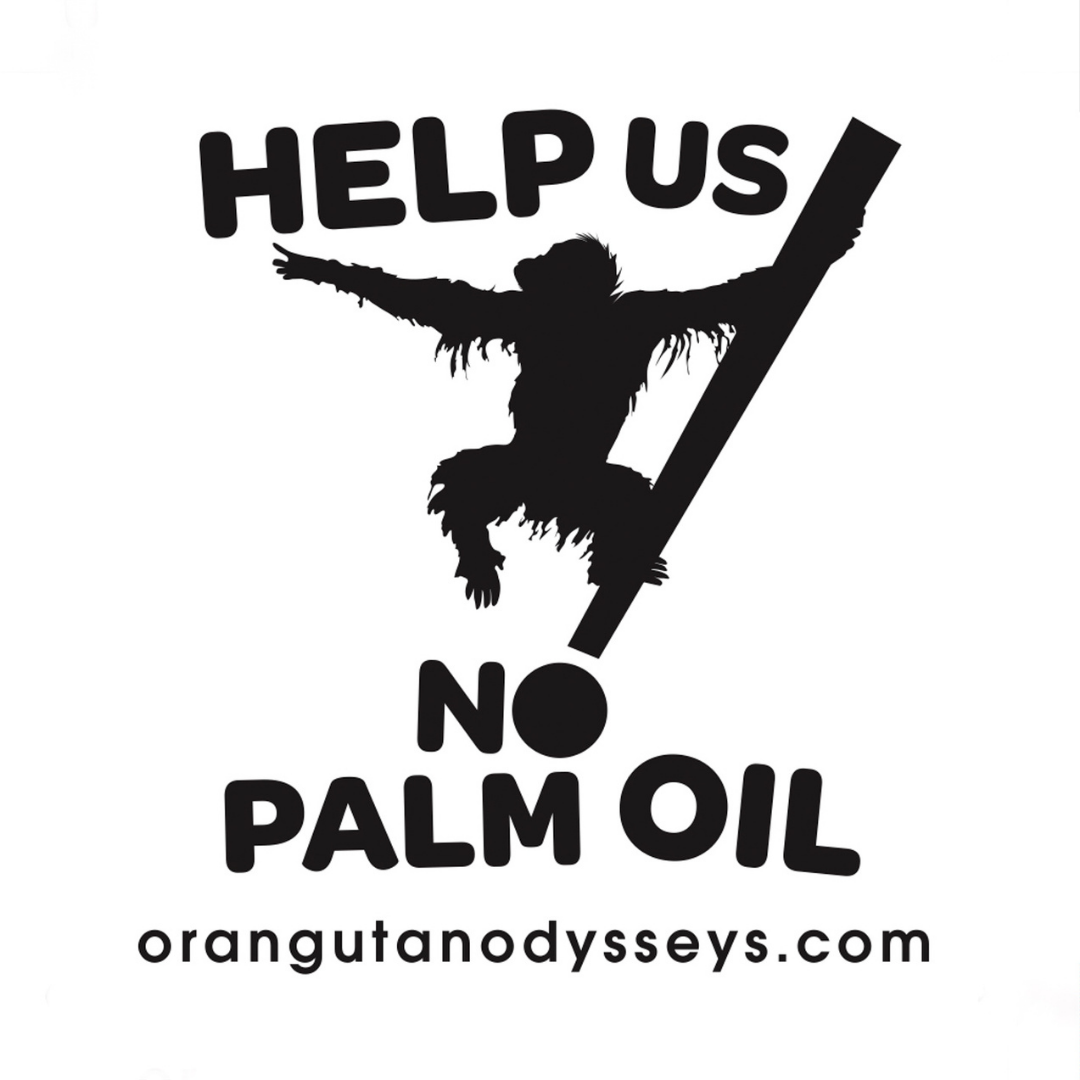Say NO to Palm Oil

Loss of Orangutan habitat through deforestation due to the new Palm Oil plantations is the major problem that we can all help to slow down and eventually stop.
What is Palm Oil?
A form of edible vegetable oil obtained from the fruit of the African oil palm tree (Elaeis guineensis).
African Oil palms originated in West Africa, but can flourish wherever heat and rainfall are abundant. The majority of all palm oil is grown and produced in Borneo and Sumatra; it is an introduced agricultural crop (not gathered from the rain forests). Second-most widely produced edible oil, behind soybean oil. Used in many food, cosmetic and bath products. Palm oil is extracted from the pulp of the fruit and is an edible oil used in food. It is used in many foods, cosmetic and household products. More recently it is being touted as a biofuel - despite evidence that the use of palm oil-based diesel actually increases greenhouse emissions.
What's the threat to Orangutans?
The increased demand for palm oil, which is grown only in tropical environments, is fueling destruction of the rainforest habitat of Sumatran and Bornean Orangutans, pushing those endangered species even closer to extinction. Estimates show that if something isn't done soon to stop the spread of oil palm plantations into the forests, Orangutans will be extinct within 10-20 years.
Did you know? Palm oil plantations are the main driver for deforestation in Indonesia and Malaysia. These two regions account for 85% of global production of palm oil.
What can you do?
Check the ingredients - if the product contains palm oil (usually labelled as vegetable oil or fat), check with the manufacturer as to whether it is certified sustainable palm oil (CSPO). If yes, you can be comfortable that the product is "orangutan friendly". If not, seek an alternative product.
Did you know?
Only 3 vegetable oils must be labelled in food products in Australia. They are peanut oil, sesame oil and soy bean oil.
All other vegetable oils can be labelled as vegetable oil. However, the label must declare the amount of saturated fat in the product.
Vegetable oil containing saturated fat is palm kernel oil, palm oil or coconut oil.
You can also write letters to retailers and the government expressing your concerns and demanding change. You'll find sample letters on the Palm Oil Action Group site http://www.palmoilaction.org.au/. Inform your family, friends and colleagues of the issue or write to your Federal Member and demand that they legislate to make Palm Oil labeling mandatory.
Australians consume an average of 10kg of Palm Oil per person each year
For more information on palm oil and products of palm oil, visit:
